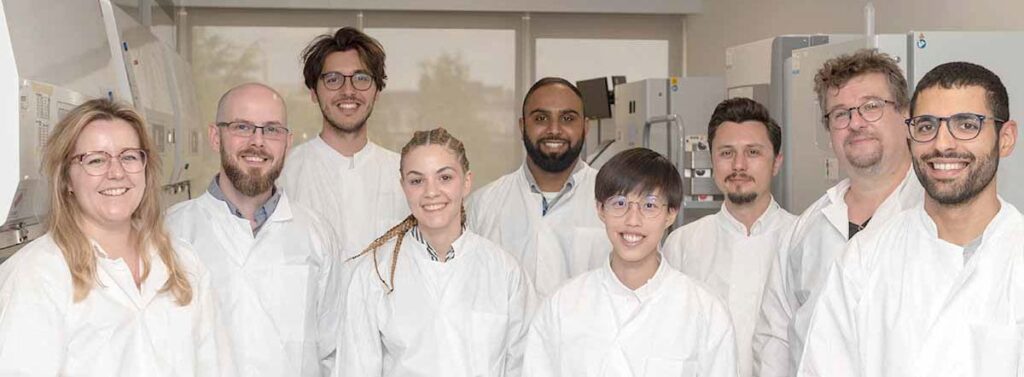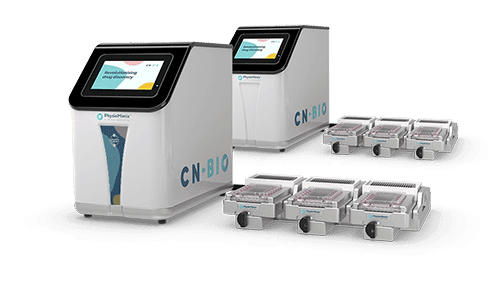CN Bio and Altis Biosystems partner to develop next-generation human Gut/Liver in vitro model for advanced ADME studies
- Strategic partnership harnesses respective organ-specific expertise to provide complete human-derived Organ-on-a-Chip solution for more accurate in vitro ADME predictions
- Early access to dual-organ model available through CN Bio’s Contract Research Services

CN Bio and Altis Biosystems, Inc. (“Altis”), leading developers of in vitro human organ models that optimize the accuracy and efficiency of drug development, today announced a strategic partnership. Through this partnership, Altis’ human RepliGut® Planar-Jejunum model will be integrated with CN Bio’s PhysioMimix® Liver-on-a-chip to create a primary human microphysiological system (MPS), with inter-organ communication to mimic the oral drug administration route. Harnessing both companies’ organ-specific expertise, the MPS provides preclinical researchers with a robust and reliable Gut/Liver model for enhancing the in vitro to in vivo translatability of oral bioavailability studies.
Absorption, distribution, metabolism, and excretion (ADME) data is collected during drug discovery and development to predict how a drug interacts with a patient’s body, helping to optimize drug properties, support candidate selection, and inform the design of the clinical phase. However, as many as 5-10% of clinical failures are attributed to issues with pharmacokinetics in drug development1. Existing preclinical tools to assess human oral bioavailability are limited; cell culture models are simplistic, whilst interspecies differences limit the translatability of data between animal models and humans2. CN Bio and Altis’ integrated Gut/Liver MPS bridges this gap for more accurate predictions of human drug oral bioavailability earlier in the drug development process. The model enables researchers to select only the most promising candidates for animal studies, better inform in vivo study design, and minimize the number of animals required.
Primary human cells are considered the gold standard for advanced in vitro models; however, gut cells present challenges that limit their use. Altis’ RepliGut Planar model overcomes these limitations by using donor intestinal stem cells that are sequentially proliferated and differentiated into the key cell types in the human gastrointestinal epithelium. RepliGut Planar models developed from the different intestine regions recreate the cellular lifecycle of the intestinal crypt and can be used for a variety of applications. By interconnecting the RepliGut Planar-Jejunum model with CN Bio’s industry-leading primary human Liver-on-a-Chip, the dual-organ Gut/Liver model represents the next generation of CN Bio’s oral bioavailability assay. The unique solution generated via this partnership will enable researchers to maximize the accuracy and predictability of in vitro-derived data.
Early access
Early access is available through CN Bio’s ADME Contract Research Services, prior to the release of a commercial product for use with the PhysioMimix Dual-organ System.


Dr Yassen Abbas, Lead Scientist, CN Bio, said:
“At CN Bio, we strive to develop the most predictive and human-relevant assays possible – we recognize Altis is specialized in modeling the intestinal epithelium, so we anticipated working together would provide a unique opportunity. Through this strategic partnership, we can capitalize on each other’s strengths to provide the industry with a best-in-class solution to address researchers’ needs – we are excited by its ongoing success.”

Dr. Ben Scruggs, CEO, Altis Biosystems, commented:
“We are very excited to be embarking on this relationship with CN-Bio. Coming together like this enables researchers to benefit from decades of organ-specific expertise combined into one dual-organ MPS solution. Our collaborative relationship supports Altis’ ongoing mission to develop advanced cell-based models and assays that bridge the gap between basic research and clinical translation, and it’s a great step in our evolution as a company.”
- Kola, I. and Landis, J. (2004) ‘Can the pharmaceutical industry reduce attrition rates?’, Nature Reviews Drug Discovery, 3(8), pp. 711–716. doi:10.1038/nrd1470
- Musther, H. et al. (2014) ‘Animal versus human oral drug bioavailability: Do they correlate?’, European Journal of Pharmaceutical Sciences, 57, pp. 280–291.

